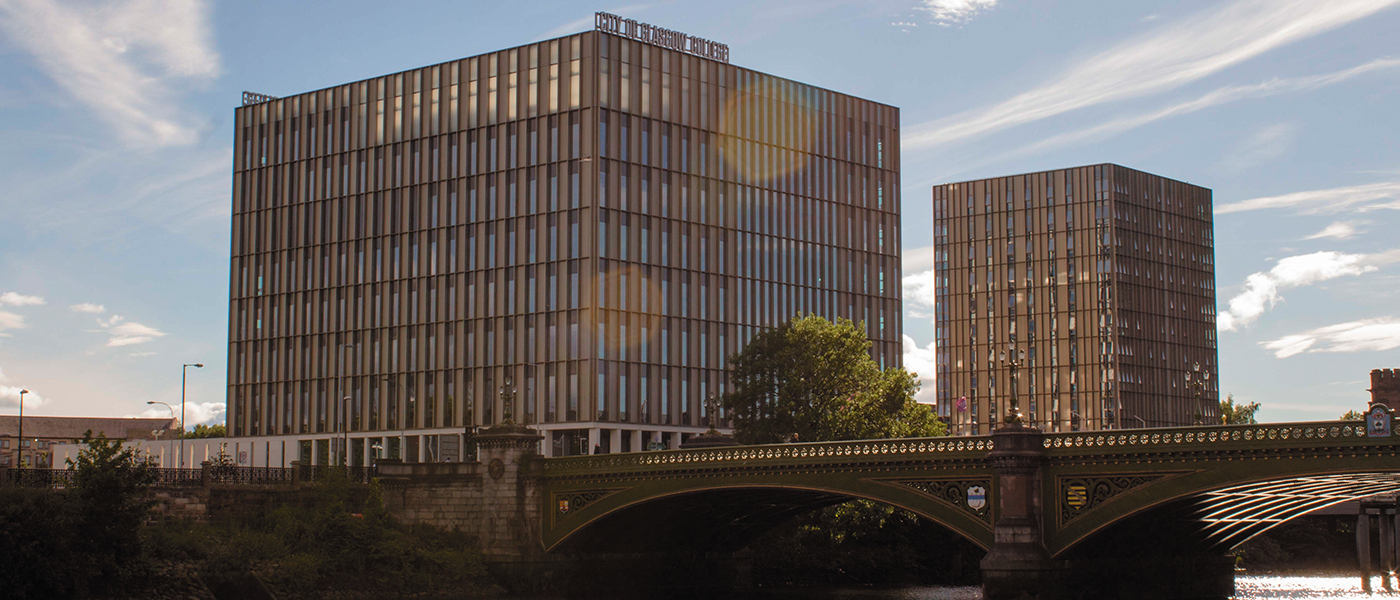UN SDG 8: Decent work and economic growth
Promote sustained, inclusive and sustainable economic growth, full and productive employment and decent work for all
Our research

The University of Glasgow is a partner in a new initiative which is set to revolutionise and shape future regulatory landscapes in the field of financial services and the use of cutting-edge technologies in the sector.
The Financial Regulation Innovation Lab (FRIL) is a partnership between the University, FinTech Scotland – an independent body encouraging innovation and collaboration within the financial services sector – and the University of Strathclyde.
Funded specifically by the Glasgow City Region Innovation Accelerator programme (led by Innovate UK on behalf of UK Research & Innovation), FRIL will deliver a wide-ranging, ambitious research agenda led by, and for the use of, the financial sector.
Working closely with industry participants – including large established financial institutions, the fintech community, academics, voluntary organisations and regulators across the UK – researchers will cover various aspects of financial regulation, including AI applications for environmental, social and governance risk management, and using automation and AI to combat money laundering.
Find out more
Learning & teaching

The University’s Student Opportunities Hub supports our students to find part-time jobs and internships, both on and off campus. The Hub is designed with a ‘student first’ mindset. It makes applying for jobs easier, more accessible and is the one-stop-shop for students looking for work.
Whether it is a part-time job or internship, the Hub contains a wide variety of roles available throughout the academic year and summer. There are opportunities in various industries and sectors, to provide students with invaluable experience to help support their time at university while helping set them up for their future career.
Find out more
University operations

The University and Glasgow Clyde College have signed a Memorandum of Understanding (MoU) in a bid to work closer on ambitious projects to boost productivity, growth and inclusion across the region.
The new agreement will also see increased collaboration between the two institutions to identify opportunities to support the development of Glasgow City Region’s skills pipeline.
Underpinning the MoU is a commitment to improve and widen access to opportunities presented by education and job training, which will build on the success of the University’s Widening Participation programmes and the College’s extensive experience of partnering with employers and other stakeholders to support its students.
Two key objectives of the MOU include, firstly, considering how the University of Glasgow, as one of the region’s largest employers, can develop placement and career development opportunities for Glasgow Clyde College students across its wide range of commercial and other service areas.
And secondly, how the partnership can support plans for the Glasgow Riverside Innovation District, a city-wide partnership led by the University, Glasgo
Civic engagement

To help boost Scottish productivity and prosperity, the University has joined forces with the Scottish Productivity Forum and Productivity Club Scotland to deliver a programme of research and practical action.
As part of National Productivity Week, the University hosted three days of events to share new thinking about productivity, ways it can be measured and how to cultivate inclusive, sustainable growth. This work is part of the
£32 million ESRC-funded Productivity Institute.
Improving productivity in the UK’s largest cities is critical to improving growth and prosperity. There is a direct link between improved productivity and higher wages and household incomes; stronger businesses; better public services; and a higher standard of living.
The University’s Adam Smith Business School and School of Social & Political Sciences are partners in the Productivity Institute, headquartered at Alliance Manchester Business School. Economic and business specialists, together with leading experts from a range of disciplines and backgrounds, are working directly with policymakers and business to better understand, measure and enable improvements in productivity across the UK.
The Scottish Productivity Forum is one of eight forums UK-wide working to unlock Scotland’s productivity puzzle, address regional issues of productivity to increase living standards and build a stronger, more resilient economy with sustainable growth. It includes representatives from the area’s key sectors as well as from the public sector and academia.
Find out more

The University and Glasgow Clyde College have signed a Memorandum of Understanding in a bid to work closer on ambitious projects to boost productivity, growth and inclusion across the region.



















